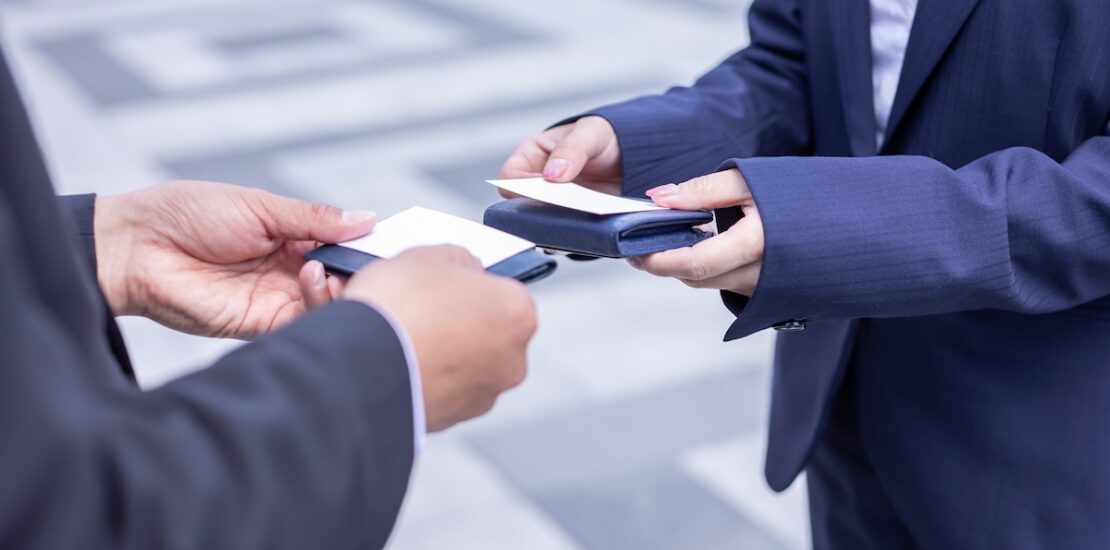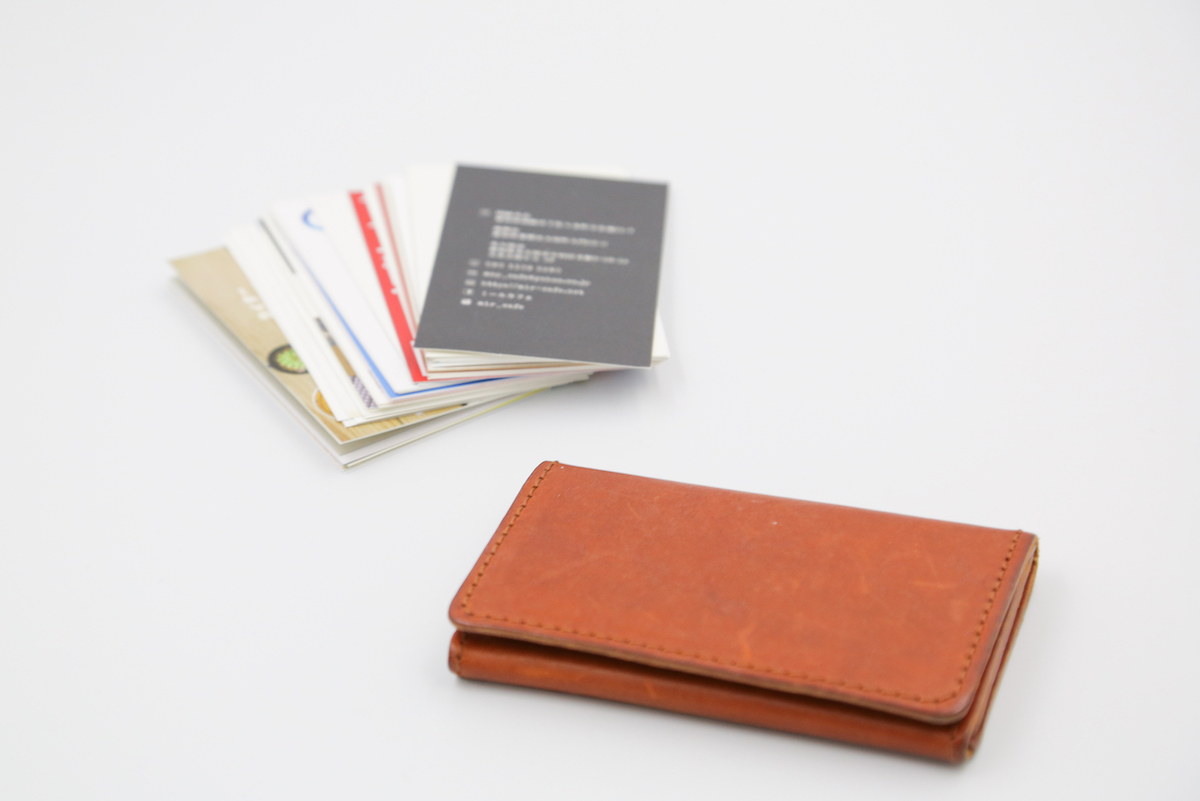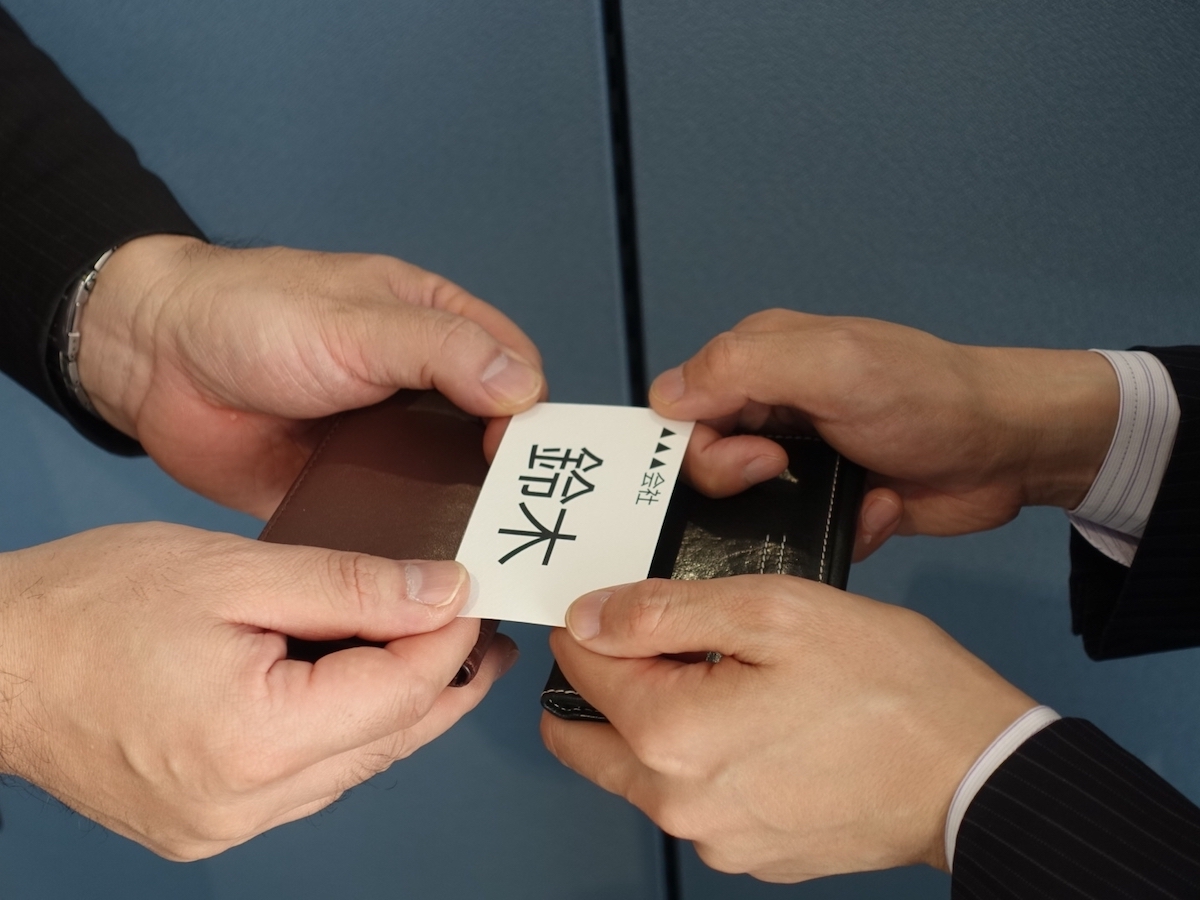Business cards are still heavily in use in Japan and they come with their own specific rules for handling them. In this article, we look at why business cards are so important in Japan and examine some of the rules you should know when dealing with them.

Business cards occupy a strange place in the world where they are still very common in some countries and falling out of favor in others. No matter what status they hold elsewhere, it would be hard to find a place where business cards are as important and common as they are in Japan. It’s almost impossible to complete any sort of business transaction in Japan without being handed someone’s card as part of their introduction. Business cards are so important that a lot of traditions and rules of etiquette have grown up around them. It’s important to know at least some of these rules so you can avoid offending someone if you’re ever in a situation where business cards change hands in Japan. In this article, we take a look at some of the customs and practices around business cards and why business cards are still so important in Japan.

Business Cards in Japan
Business cards are called meishi in Japanese and are an extremely important part of doing business. Usually, when you meet someone for the first time in a business setting outside of regular retail shopping, you will be handed a business card. Regardless of whether you’re attending a business meeting or just taking your car in for a service, you can expect to be handed a card by the person you’re dealing with. In your day to day life you probably don’t need a business card yourself, but if you’re in an industry that requires you to meet with other people in a business setting, you’ll more than likely need business cards of your own.
Business cards are seen as an essential part of a business introduction. They have your name, your position, your company and your contact information, all important details for the person receiving the card to know. They ensure that the giver’s name isn’t forgotten and serves, in some ways, as a representative of themselves just as they are a representative of their company. There are a number of important manners to observe when giving or receiving business cards so let’s look at some of them
What to do when you receive a business card

When you meet someone in a business setting and they present their business card, it’s important to receive it using both hands and to thank the giver when you take it. If you were sitting down, it’s important to stand up to receive the card. When you receive it, you should take the card by the corners if possible. Next, you should take a moment to read the card, making sure you understand the person’s name and position. Though it’s not one hundred percent necessary, it’s good to repeat the person’s name or if you have trouble reading the name, a good time to ask how to pronounce it.
It’s very rude to put the card straight into your back pocket or to put it away too quickly so if you sit down after receiving the card, the politest option is to place it face up on the table in front of you. This is also handy if you happen to forget the person’s name throughout the meeting or conversation! A good rule of thumb is to treat the card as an extension of the other person, so be respectful of it at all times.
Exchanging Cards
If you’re in a business situation where you need to exchange cards, the rules become a little more complicated. When exchanging cards, normally the visiting party will go first. If you’re in a meeting type setting and need to give out multiple cards, you should give your card to the highest ranked person first. Introduce yourself with your name, company and position, then bow and present the card with both hands. The writing on the card should face the person receiving it. You then receive the other person’s card as per the steps above.

Things you definitely shouldn’t do
As there are so many rules for business card etiquette, it’s definitely a good idea to know what NOT to do. These are easy to remember.
- As mentioned earlier, don’t go putting the other person’s business card straight into your pocket.
- Never write on the business card.
- It may seem obvious but, if you’re giving out a card, make sure you don’t give out a damaged or dirty one.
Business cards are a very important part of Japanese life. Even if you never work in an industry that requires them, you’re bound at some point to come across a situation where you need to accept a business card from someone else. As there are many differences in Japan when it comes to these types of interactions, knowing which rules to follow is very important for these kinds of situations to go smoothly.



